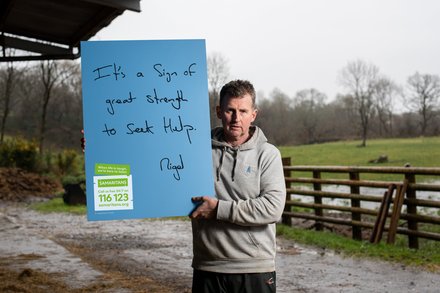A Look at the Career of Nigel Owens, Leading Rugby Referee

Introduction
Nigel Owens, one of the world’s most renowned rugby referees, has significantly impacted the sport both in Wales and globally. His career, marked by high-profile matches and a unique approach to refereeing, highlights the evolution of officiating standards in rugby. As Owens continues to inspire both players and fans, understanding his journey is essential for appreciating the role of referees in the game.
Early Career and Rise to Prominence
Nigel Owens was born on June 18, 1971, in Mynyddygarreg, Wales. He began his officiating career in 1995, quickly gaining recognition for his strong communication skills and understanding of the game. Owens made his international debut in 2003, and over the years, he officiated numerous significant matches including World Cup fixtures, Six Nations tournaments, and European Championship games. His appointment to referee the 2015 Rugby World Cup final was a peak moment, solidifying his position as one of the top referees in the sport.
Achievements and Notable Moments
Owens has not only officiated but also influenced the game with his unique style. He is known for his fairness, firm decision-making, and the ability to engage with players on and off the field. In a landmark moment in 2016, Owens officiated an openly gay rugby match, championing inclusivity in sports. His approach has inspired discussions about respect and sportsmanship among players and fans alike.
Cultural Impact and Advocacy
Apart from his refereeing duties, Owens is celebrated for his candidness regarding personal struggles, particularly with mental health. In interviews, he has spoken about overcoming challenges, which has encouraged many in the rugby community to discuss similar issues. His advocacy aligns with the growing movement within sports to address mental health openly.
Retirement and Legacy
In 2020, Owens announced his retirement from international refereeing, concluding a remarkable career that spanned over two decades. His legacy continues through his contributions to rugby, exemplifying how referees can elevate the game and foster a positive environment on the field. As he steps back, his insights and experience remain invaluable resources for aspiring referees and players.
Conclusion
The career of Nigel Owens represents more than just officiating; it signifies the spirit of rugby itself—respect, camaraderie, and resilience. His influence will undoubtedly carry on, shaping the next generation of referees and players. As rugby continues to evolve, the significance of Owens’ work will remain a cornerstone of the sport’s fabric, inspiring all those who love the game.









